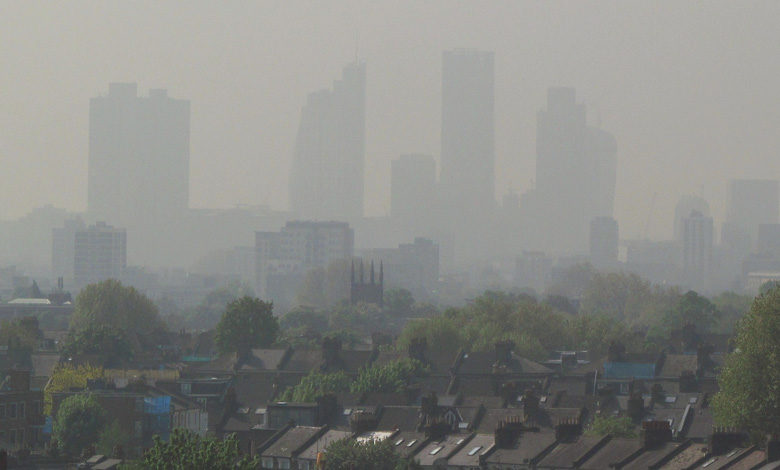Climate crisis needs to be treated as a health crisis

Elaine Mulcahy, Director of UK Health Alliance on Climate Change, talks about the impact of climate change on public health, and the consequences which await us if action is not taken immediately.
Mulcahy states that an 80 per cent reduction in greenhouse gas emissions in power generation systems by 2050, has the potential to result in a 60 per cent reduction in NO2 levels in the air, saving seven million life years as a result of a reduction in exposure to NO2.
However, if things remain as they are right now, the global temperature will have risen by 2.5°C by 2057, meaning that places such as Scotland will have no more snow in winter, and will suffer from intense flooding and rainfall.
She further states that summers will be 3°C higher, meaning that the UK and countries with a similar climate will find themselves prone to flash floods, with the climate to become akin to tropical countries without the necessary infrastructure in place.
Health impacts of global heating
Mulcahy gives an overview of the dire health consequences which will emerge as a result of the climate change, highlighting that there has already been a 50 per cent increase in heat-related mortality over the last 50 years.
Using a pointed example of a women in 2057 who may wish to have a child, she outlines the additional health complications which will apply for women by then if action is not taken in the immediate term.
“By 2057, pregnant women will have a far higher risk of having a stillbirth and will be more likely to have a preterm baby with a low birth rate. Furthermore, people by then will be more at risk of dying from heat.
“By 2050, 7,000 people a year in the UK will die from heat-related causes. They will be more at risk of Lyme disease, salmonella poisoning, diarrhoea, and blood infections from water; that generation will experience more pandemics than anyone today has.
“Replacing half of UK meat and dairy consumption with fruit, vegetables and cereals, would result in a 19 per cent reduction in agricultural greenhouse gas emissions, while also avoiding or delaying 37,000 deaths a year from coronary heart disease, stroke and diet-related cancer.”
“Everyone’s physical and mental health will suffer. Increased dehydration, renal function loss, skin cancers, tropical infections, adverse mental health outcomes, pregnancy complications, and allergies.”
In July 2022, the United Nations declared that access to a clean and healthy environment, which includes clean air, was a human right. Despite this, 99 per cent of the global population currently breathe air which exceeds the guidelines of the World Health Organisation.
Indeed, there are cities in the world, such as New Delhi, where the air quality is so poor that it has the equivalent effect on lungs as smoking 7.7 cigarettes per day.
Mulcahy surmises this crisis by quoting Tedros Adhanom Ghebreyesus, Director General of the World Health Organisation, when he said: “The modern addiction to fossil fuels is not just an act of environmental vandalism. From the health perspective, it is an act of self-sabotage.”
A route to recovery
Mulcahy states that “it has become clear that we are facing a predicament that strikes at the very heart of humanity,” outlining her belief that the climate crisis needs to be “treated first and foremost as a health crisis”, as the health impact of changes to the climate will be the most profound.
For a route to recovery, she outlines a course of action which she believes can be taken on a grand scheme to mitigate from the worst health consequences, although she does state that some changes are permanent cand cannot be solved.
She further states that more energy-efficient homes have a critical role to play in the reduction of carbon emissions.
“Improving insulation and ventilation and a switch from fossil fuel sources would result in a reduction of 0.6 megatons of CO2 per million population and potentially save 850 disability adjusted life years per million population,” Mulcahy states.
Complementary to this is an advocation of a change of dietary lifestyle, which can reduce emissions by reducing the scope of the agricultural sector, whilst further fostering better health by a reduction in consumption of fats and more consumption of healthier foods.
“Replacing half of UK meat and dairy consumption with fruit, vegetables and cereals, would result in a 19 per cent reduction in agricultural greenhouse gas emissions, while also avoiding or delaying 37,000 deaths a year from coronary heart disease, stroke and diet-related cancer.”
She further outlines the importance of active travel, stating: “Increased uptake of public transport and active travel with a transition away from private motor vehicle use, could lead to improvements in health combined with significant savings on healthcare costs as a result of reduced air pollution and higher levels of physical activity.”






